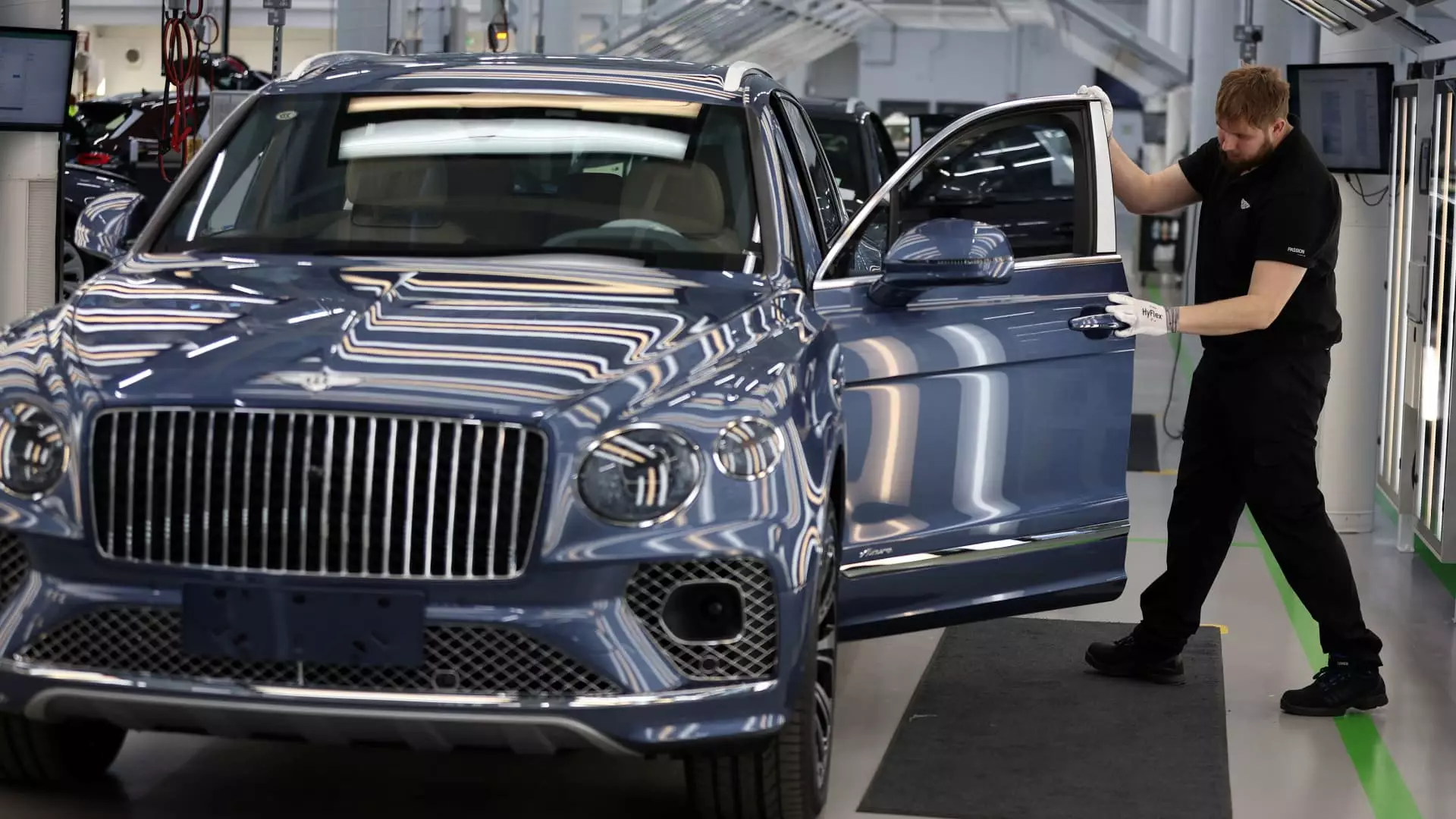In a surprising turn of events, Bentley Motors has announced a significant delay in its plans to exclusively produce all-electric vehicles. Originally aiming to complete this transition by 2030, the British luxury car brand has now set its sights on 2035, primarily driven by fluctuating market demands and the realities of consumer preferences. This revelation came during a recent media briefing with Bentley’s Chairman and CEO, Frank-Steffen Walliser, who candidly acknowledged the lack of immediate demand for electric vehicles (EVs) from the existing customer base.
This shift reveals a broader narrative about how established automakers are navigating the complexities of the electrification landscape. As competition rises, Bentley is not only collaborating with regulatory pressures but also seeking to understand its customer demographics and their evolving needs. While the company still envisions a future dominated by fully electric vehicles, this latest adjustment underscores the challenges luxury brands face in a rapidly changing automotive market.
One of Bentley’s core challenges lies in balancing its heritage of powerful, high-performance internal combustion engines with the visionary aspirations of electric mobility. Known for its opulent vehicles equipped with robust W12 and V8 engines, the firm has recently made a decisive pivot by ceasing the production of its illustrious W12 engine in favor of plug-in hybrid electric vehicles (PHEVs). This realignment indicates a conscious effort to integrate hybrid technology while still recognizing the allure of traditional gasoline power among its loyal clientele.
Matthias Rabe, Bentley’s head of research and development, articulated this dual strategy by emphasizing the need to adapt to market demands. The presence of PHEVs in Bentley’s product line reflects a broader trend in the automotive industry, wherein manufacturers increasingly offer hybrid options that combine the benefits of both electric drive and conventional powertrains. For Bentley, these vehicles serve a unique purpose: satisfying consumer expectations while also paving the way for a complete transition to electrification.
Walliser further elaborated that legislative mandates are becoming a significant catalyst in pushing Bentley towards electrification. However, this regulatory push alone is not enough to dictate the pace of change. The reluctance of current Bentley customers to adapt to electric vehicles poses a conundrum for the company. While new legislation is intended to reduce emissions and encourage the adoption of EVs, the reality remains that a sizable portion of Bentley’s customer base still revels in the company’s signature luxury and performance, traditionally associated with internal combustion engines.
The goal of releasing a new EV or PHEV annually until 2035 signifies Bentley’s attempt to gradually introduce its customers to electric driving. The planned introduction of an urban-focused luxury SUV in 2026 demonstrates a strategic move towards blending sustainability with the brand’s luxurious image. Nonetheless, Walliser’s remarks indicate a clear tension between maintaining the expectations of a traditional luxury market and adapting to the present realities of an increasingly electrified future.
The rebranding of Bentley’s strategic vision from “Beyond100” to “Beyond100+” encapsulates more than just the postponement of its electric vehicle rollout. This name change symbolizes an adaptive strategy, reflecting the company’s commitment to not only meeting future electric demands but also creating a more flexible plan that embraces both current market conditions and aspiring innovations.
This broader ambition supports Bentley’s goal of distinguishing itself in the crowded luxury automotive market, where other brands are also vying for prestige through sustainable practices. By integrating advanced technologies and innovative designs, Bentley positions itself as a forward-thinking brand that is not only conscious of its legacy but also the future trajectory of the automotive landscape.
As Bentley Motors grapples with these multifaceted challenges, it remains a pivotal player in the luxury automotive arena. The decision to extend its timeline toward full electrification could be viewed as prudent but also raises essential questions about the viability of luxury brands in a future defined by sustainable mobility.
The path is not straightforward, but through informed strategies and a keen understanding of its customer base, Bentley has the potential to redefine opulence in the modern age, complementing its storied past with a pioneering electrified future. In the coming years, the ability to harmonize tradition with innovation will determine how Bentley navigates this transformative phase and establishes itself as a leader in luxury electrification.


Leave a Reply